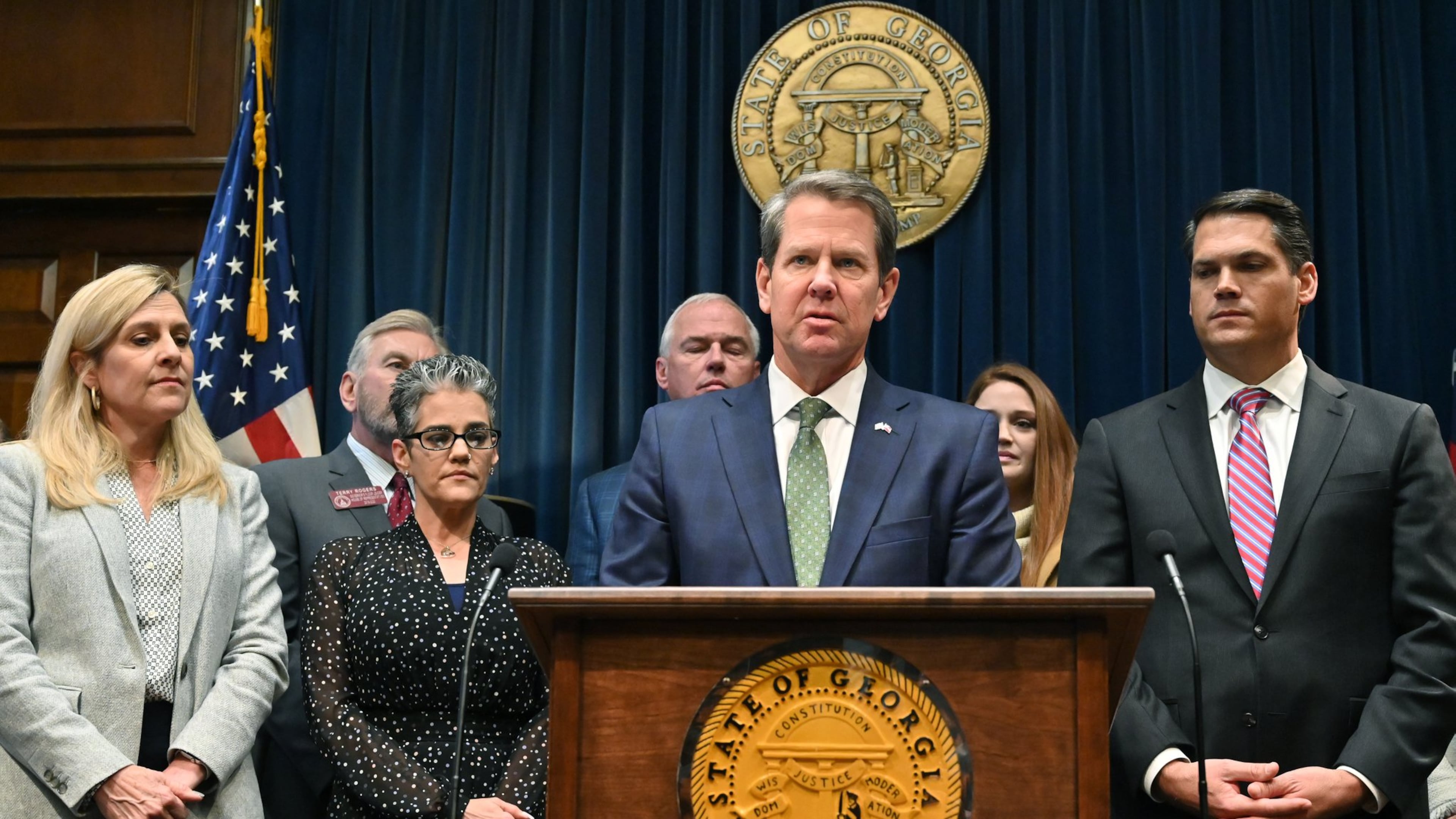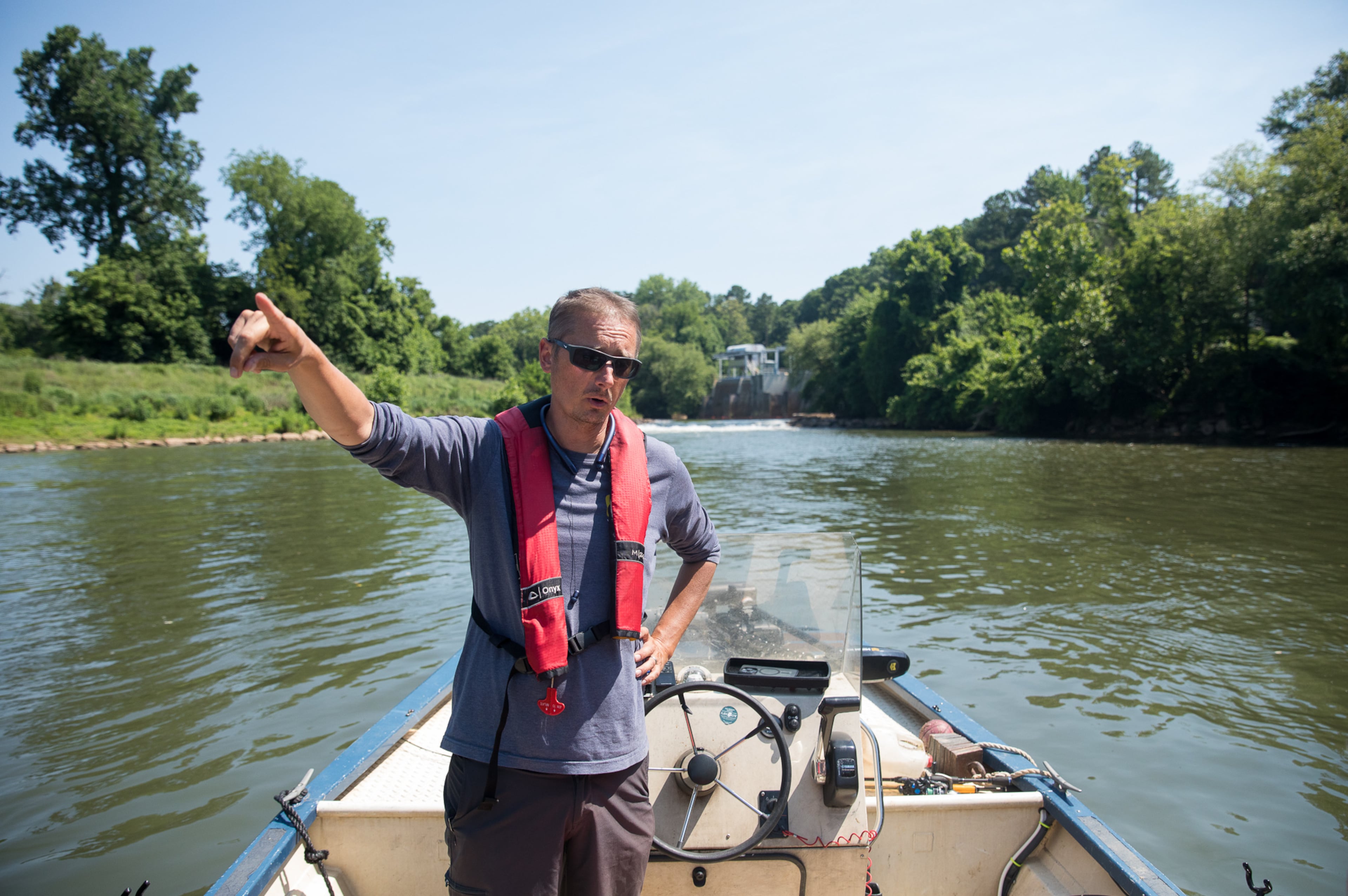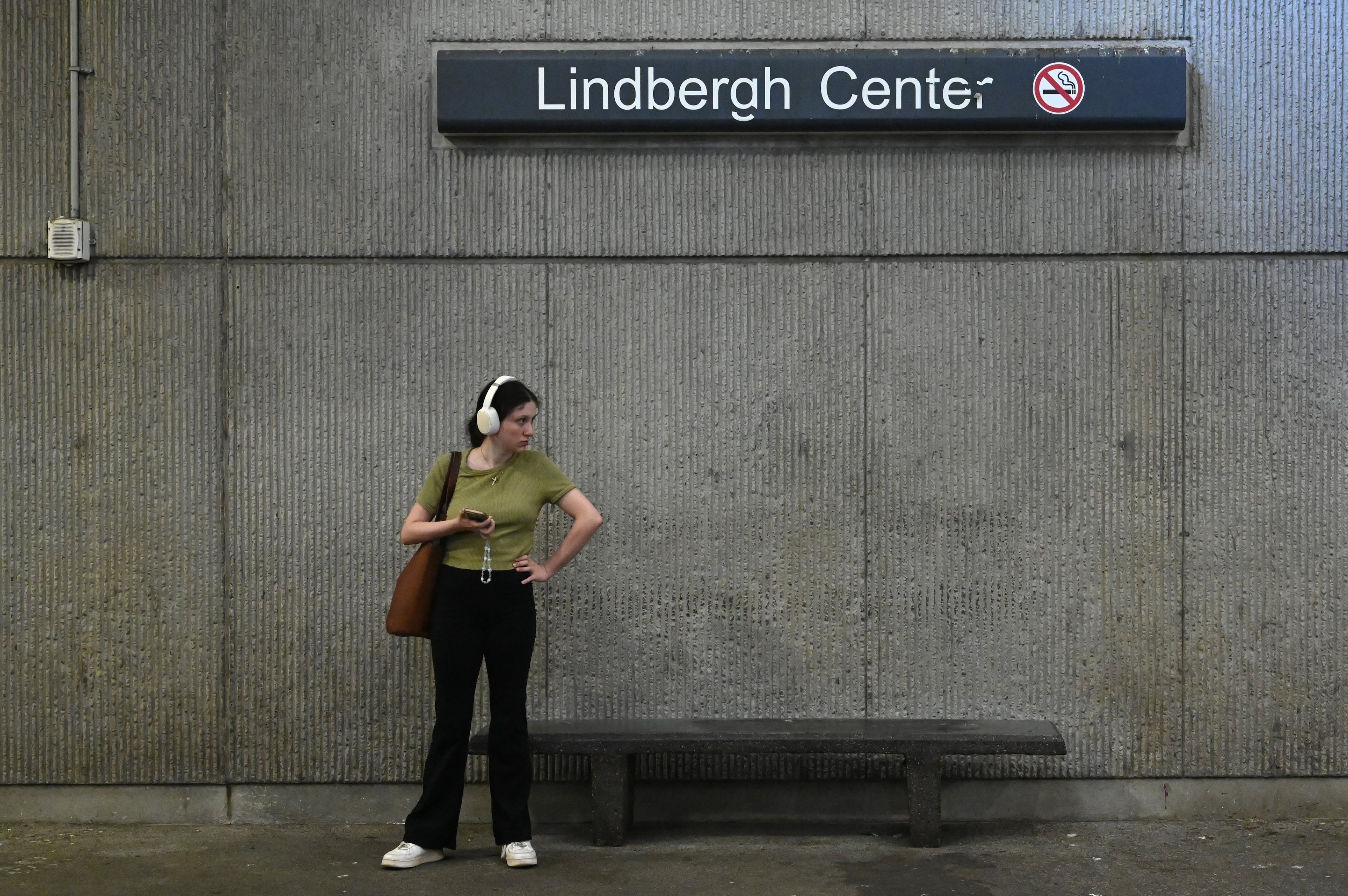Kemp-backed human trafficking bills moving through Georgia Legislature

The first pieces of Gov. Brian Kemp and First Lady Marty Kemp’s anti-human trafficking agenda passed through the Georgia House and Senate on Monday.
The trio of bills are among multiple pieces of legislation backed by the governor and first lady intended to "put some more teeth" into the state's trafficking laws.
Senate Bill 393 would allow district attorneys to request lawyers with the Georgia Bureau of Investigation to help prosecute crimes related to sex trafficking and gangs. State Sen. Brian Strickland, a McDonough Republican who often files bills on the governor's behalf, said the practice of using GBI attorneys was common.
“No matter where gang violence, human trafficking and other organized crime is occurring in Georgia, we have the ability to take those orchestrating these crimes down and these criminals will have no safe place to set up shop in our state,” he said.
READ | Bill passes seeking tweaks to local shares of Georgia car tax revenues
The legislation passed 35-19 on a party-line vote, with some Democrats arguing against giving the GBI power to arrest, investigate and prosecute.
"We need to consider what sort of conflicts of interest and power shifts occur when we allow a team of prosecutors who are ... unelected — unlike our district attorneys — to prosecute cases," said state Sen. Elena Parent, an Atlanta Democrat.
Two other bills each passed the House and Senate unanimously.
Senate Bill 435, also sponsored by Strickland, aims to create a way for victims to have prior convictions vacated if they were charged while they were a victim of human trafficking.
House Bill 823 bars anyone convicted of human trafficking from getting a commercial driver's license if their conviction involved driving a commercial vehicle. It mirrors a federal law, the No Human Trafficking on Our Roads Act, that has established a similar ban.
"This legislation provides one more tool in our fight in this state against human trafficking," said state Rep. Houston Gaines, R-Athens, who sponsored the bill.
Human trafficking is an issue Marty Kemp has prioritized since shortly after her husband's election, creating the GRACE Commission and starting a new training program to help state employees learn how to recognize and help trafficking victims.
“The governor and first lady are pleased to see such important measures for fighting human trafficking secure passage in their respective chambers,” said Candice Broce, a governor’s office spokeswoman, in a statement. “Now, they ask for the House and Senate’s continued support to send the bills to the governor’s desk for his signature.”



